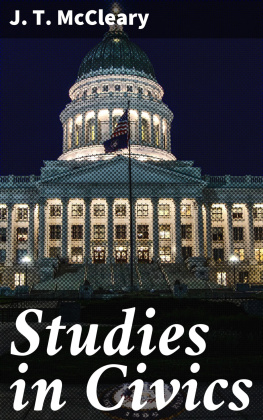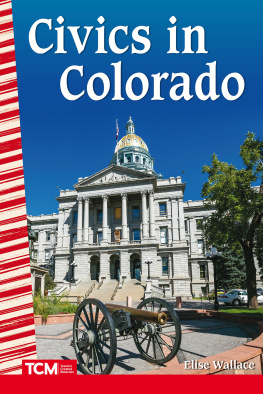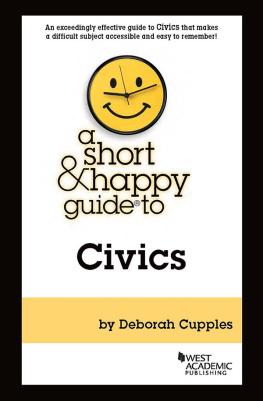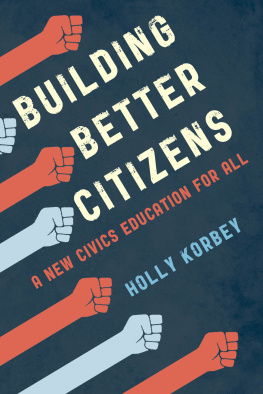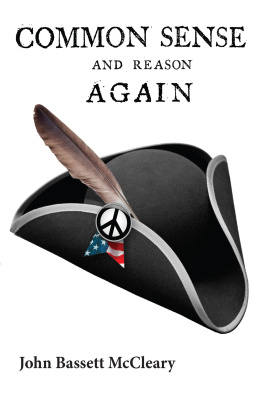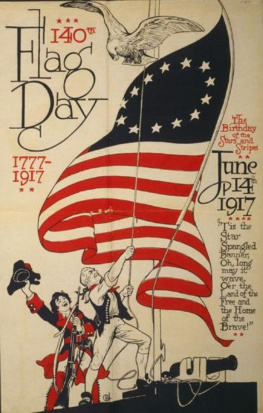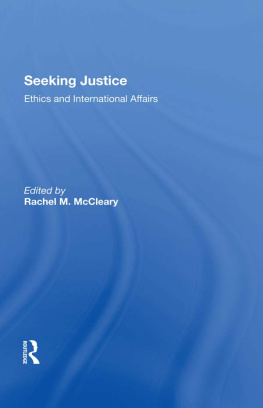AMERICAN EDUCATIONAL SERIES
STUDIES IN CIVICS
BY JAMES T. McCLEARY, M.C.
LATE TEACHER OF CIVICS AND HISTORY IN THE STATE NORMAL SCHOOL MANKATO, MINNESOTA LIFE MEMBER MINNESOTA HISTORICAL SOCIETY
REVISED TO 1897
[Illustration: (House of Representatives) UNITED STATES CAPITOL (Senate.)]
TO THE MEMBERS OF MY CLASSES IN CIVICS, WHOSE QUESTIONS HAVE AIDED ME IN DETERMINING WHAT SUBJECTS TO TREAT, AND WHOSE EARNESTNESS AND INTELLIGENCE HAVE MADE IT A PLEASURE TO BE THEIR TEACHER, THIS BOOK IS AFFECTIONATELY INSCRIBED.
PREFACE.
The thought constantly in mind in the preparation of this book has been to furnish useful material in usable form.
Attention is invited to the scope of the work. The Constitution of the United States, not a mere abstract of it but a careful study of the text, is properly given much space but is not allowed a monopoly of it. Each of our governmental institutions deserves and receives a share of consideration. The order of presentationbeginning with the town, where the student can observe the operations of government, and proceeding gradually to the consideration of government in generalis based upon conclusions reached during eighteen years of experience in teaching this subject.
Matter to be used chiefly for reference is placed in the appendix. Attention is asked to the amount of information which, by means of tabulations and other modes of condensation, is therein contained. Documents easily obtainable, such as the Declaration of Independence, are omitted to make room for typical and other interesting documents not usually accessible.
Is this book intended to be an office-holders' manual? No; but it is intended to help students to get an insight into the way in which public business is carried on.
Is it designed as an elementary treatise on law? No; but the hope is indulged that the young people who study it will catch something of the spirit of law, which to know is to respect.
CONTENTS.
PREFACE, TO TEACHERS, TO STUDENTS,
PRELIMINARY CHAPTER.
GOVERNMENT: WHAT IT IS AND WHY IT IS,
PART I.GOVERNMENT WITHIN THE STATE.
CHAPTER. I.THE TOWN: WHY AND HOW ORGANIZED, ETC., II.PRIMITIVE MODES OF ADMINISTERING JUSTICE, III.PROCEEDINGS IN A JUSTICE COURT, IV.THE INCORPORATED VILLAGE, V.THE CITY, VI.THE COUNTY, VII.ESTABLISHING JUSTICE IN THE COUNTY, VIII.HISTORICAL,
PART II.THE STATE.
IX.STATES: WHY AND HOW CREATED, X.STATE CONSTITUTIONS, XI.DEPARTMENTS OF GOVERNMENT, XII.THE LEGISLATIVE DEPARTMENT, XIII.THE EXECUTIVE DEPARTMENT, XIV.OTHER STATE OFFICERS, XV.THE JUDICIAL DEPARTMENT, XVI.RETROSPECT AND PROSPECT,
PART III.THE NATION.
XVII.THE CAUSES OF THE REVOLUTION, XVIII.THE ARTICLES OF CONFEDERATION, XIX.THE ORIGIN OF THE CONSTITUTION, XX.THE CONSTITUTION: PREAMBLE, XXI.STRUCTURE OF THE LEGISLATIVE BRANCH, XXII.POWERS OF CONGRESS, XXIII.THE EXECUTIVE BRANCH, XXIV.THE JUDICIAL BRANCH, XXV.THE RELATIONS OF THE STATES, XXVI.MODES OF AMENDING THE CONSTITUTION, XXVII.MISCELLANEOUS PROVISIONS, XXVIII.RATIFICATION OF THE CONSTITUTION, XXIX.THE AMENDMENTS,
PART IV.GOVERNMENT IN GENERAL.
XXX.FORMS OF GOVERNMENT,
PART V.COMMERCIAL LAW.
XXXI.CONTRACTS, XXXII.AGENCY, XXXIII.PARTNERSHIP, XXXIV.CORPORATIONS, XXXV.COMMERCIAL PAPER,
APPENDIX.
A.FORMS, B.TABLES, C.HOW SOME THINGS ARE DONE, D.SOME PRINCIPLES OF INTERNATIONAL LAW, E.DOCUMENTS,
GENERAL INDEX,
TO TEACHERS.
Highly competent teachers are the very ones who receive most kindly suggestions meant to be helpful. For such these words are intended.
The local organizations are so related that it is advisable for all classes to consider each of them. Especial attention should, however, be given to the organization (town, village or city) in which the school is. Here considerable time can be profitably spent, and the matter in the book may be much amplified. Here must be laid the basis of future study.
Certain typical instruments deserve careful study. For a student to have made out understandingly an official bond, for instance, is for him to have gained greatly in intelligence.
It will be of great advantage to the class for the teacher to have a complete set of the papers whose forms are given in Appendix A. These may be obtained at almost any newspaper office, at a cost of about 50 cents.
A scrap-book or series of envelopes in which to file newspaper clippings illustrative of the every-day workings of government, may be made very useful. Pupils should be permitted and encouraged to contribute.
One good way to review is for the teacher to give out, say once in two weeks, a set of twenty-five or more questions, each of which may be answered in a few words; have the pupils write their answers; and the correct answers being given by teacher or pupils, each may mark his own paper. Each pupil may thus discover where he is strong and where weak.
The questions given for debate may be discussed by the literary society. Or for morning exercises, one student may on a certain day present one side of the argument, and on the following day the negative may be brought out by another student.
A student should not be required to submit his good name to the chances of answering a certain set of questions, however excellent, at the examination, when from anxiety or other causes he may fall far short of doing himself justice. One good plan is to allow each student to make up 50 percent of his record during the progress of the work, by bringing in, say, five carefully prepared papers. One of these may be a resum of matter pertaining to his local organization; another may be an account of a trial observed, or other governmental work which the student may have seen performed; a third may be a synopsis of the president's message; the fourth, a general tabulation of the constitution; the fifth, a review of some book on government, or a paper on a subject of the student's own choice.
Among reference books, every school should have at least the Revised
Statutes of the state and of the United States, the Legislative Manual of
the state, a good political almanac for the current year, the
Congressional Directory, and Alton's Among the Lawmakers.
A Teachers' Manual, giving answers to the pertinent questions contained herein, and many useful hints as to the details of teaching Civics, is published in connection with this book.
TO STUDENTS.
You will notice in chapter one that at the close of nearly every paragraph questions are thrown in. They are inserted to help you cultivate in yourself the very valuable habit of rigid self-examination. We are all liable to assume too soon that we have the thought. Not to mar the look of the page, the questions are thenceforward placed only at the close of the chapters.
You will soon discover that these questions are so framed as to require you to read not only on the lines and between them, but also right down into them. Even then you will not be able to answer all of the questions. The information may not be in the book at all. You may have to look around a long time for the answer.
If you occasionally come to a question which you can neither answer nor dismiss from your mind, be thankful for the question and that you are bright enough to be affected in this way. You have doubtless discovered that some of your best intellectual work, your most fruitful study, has been done on just such questions.

